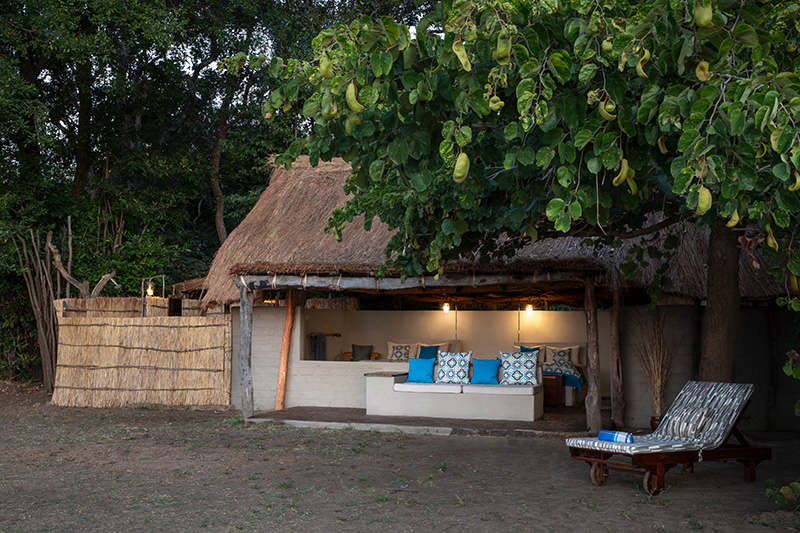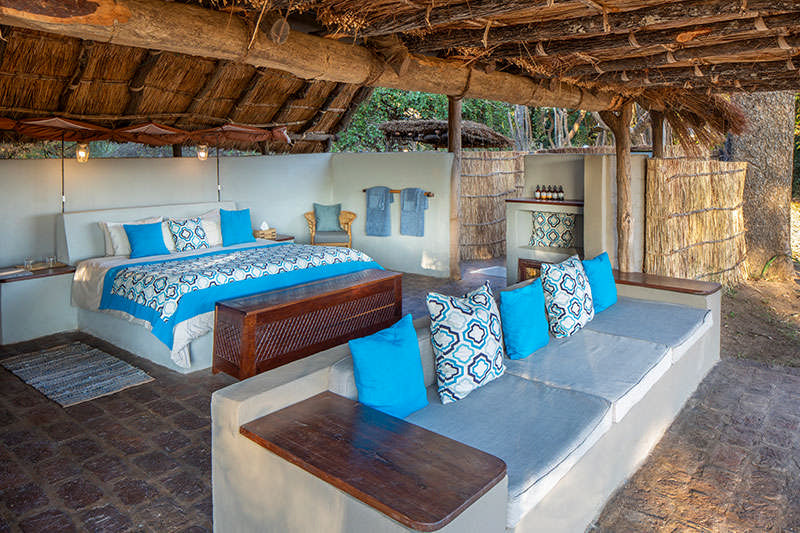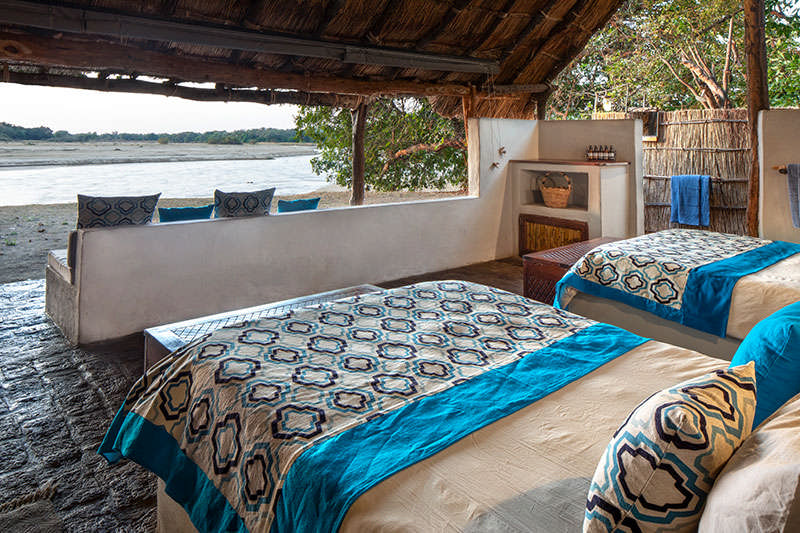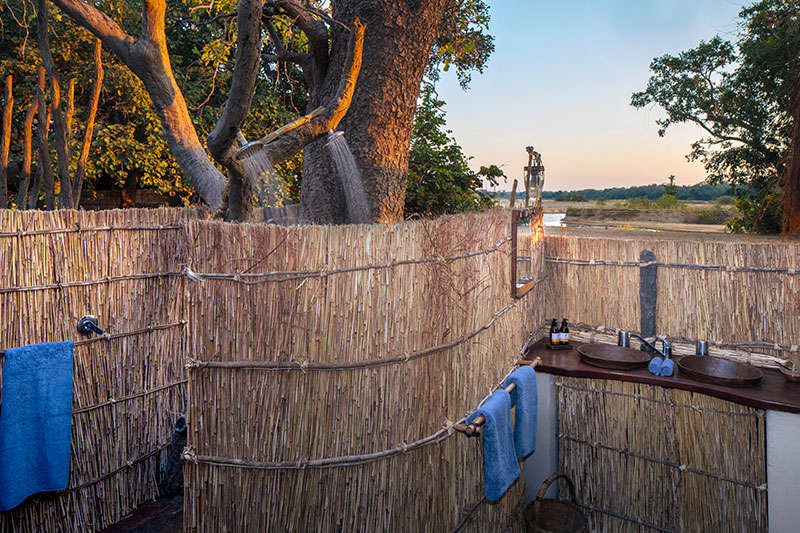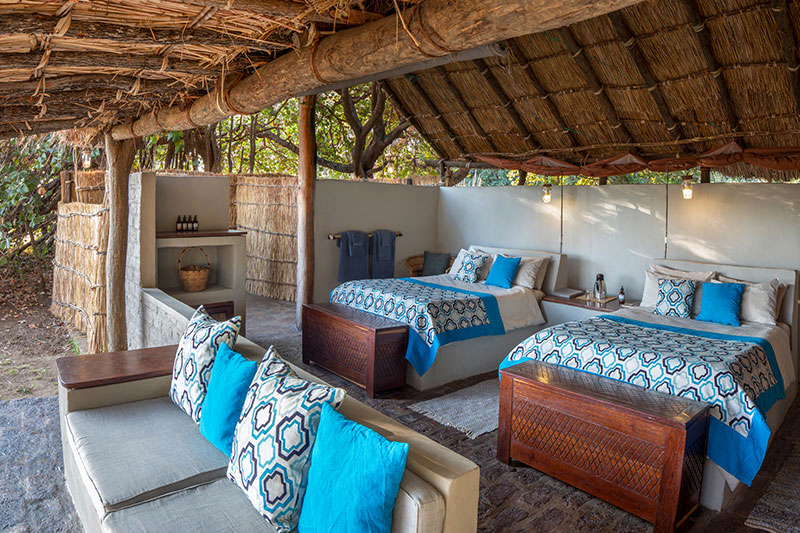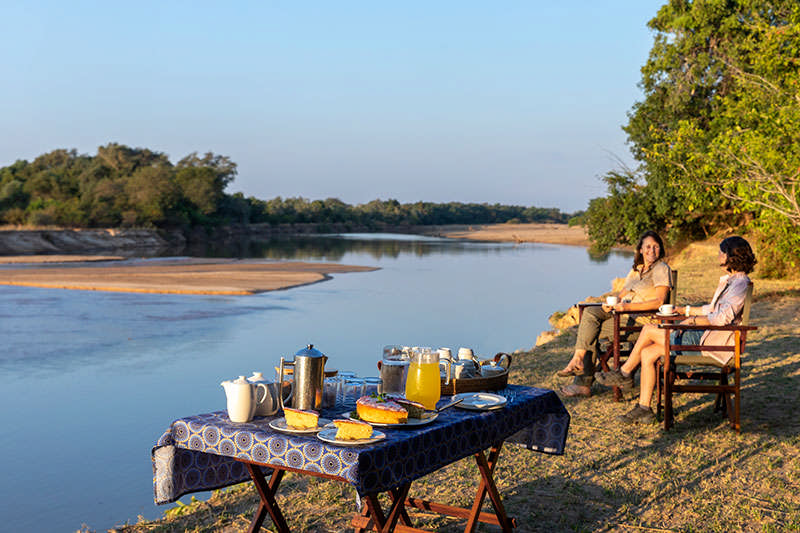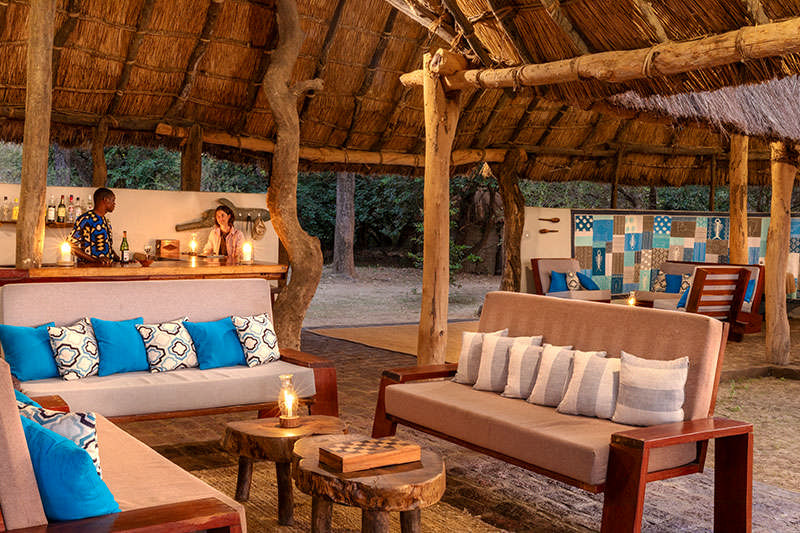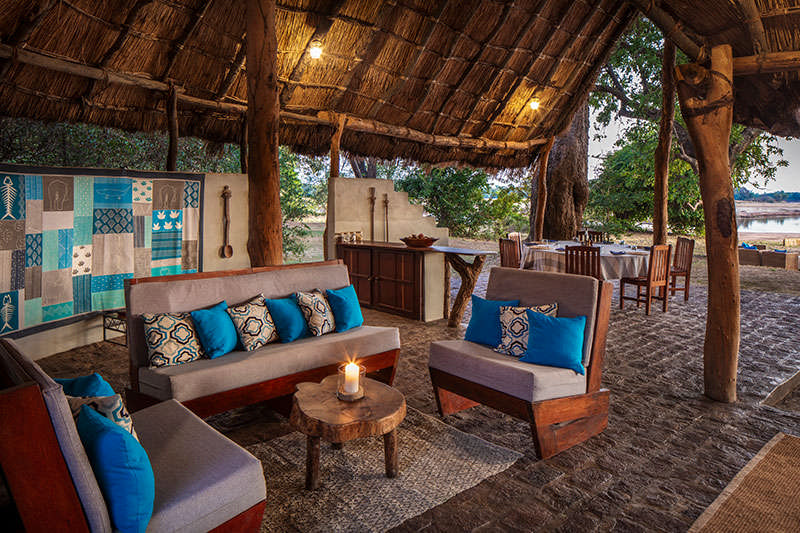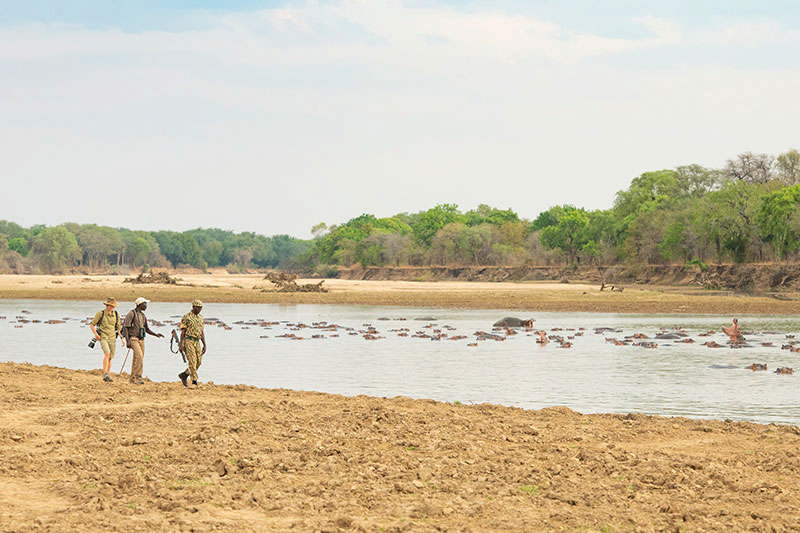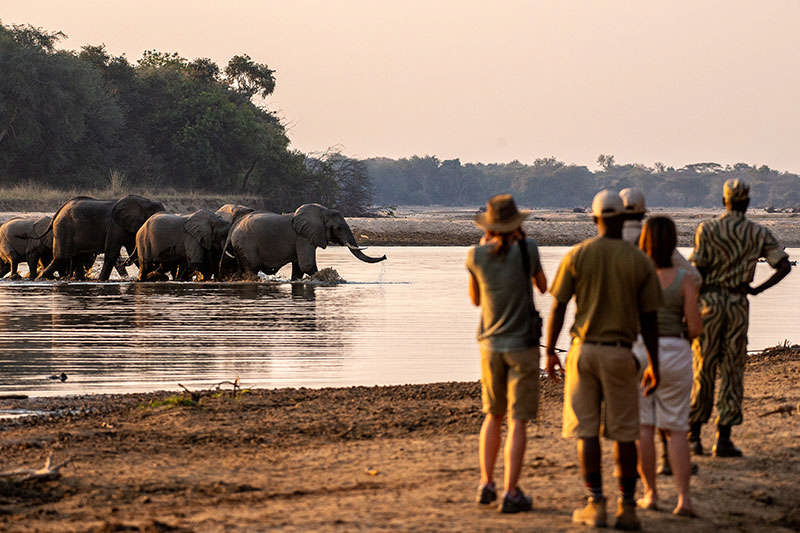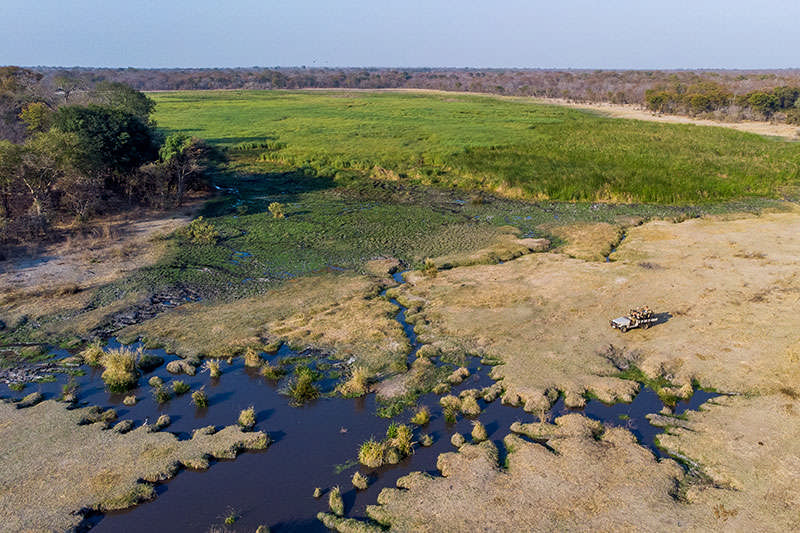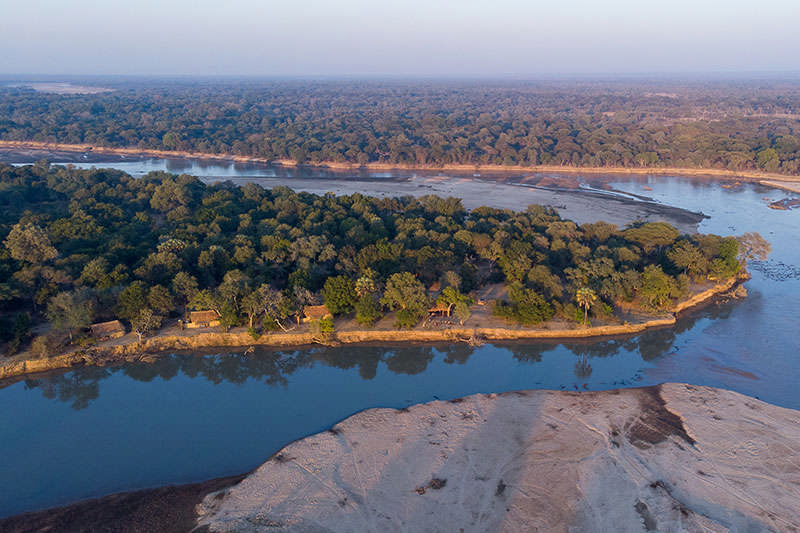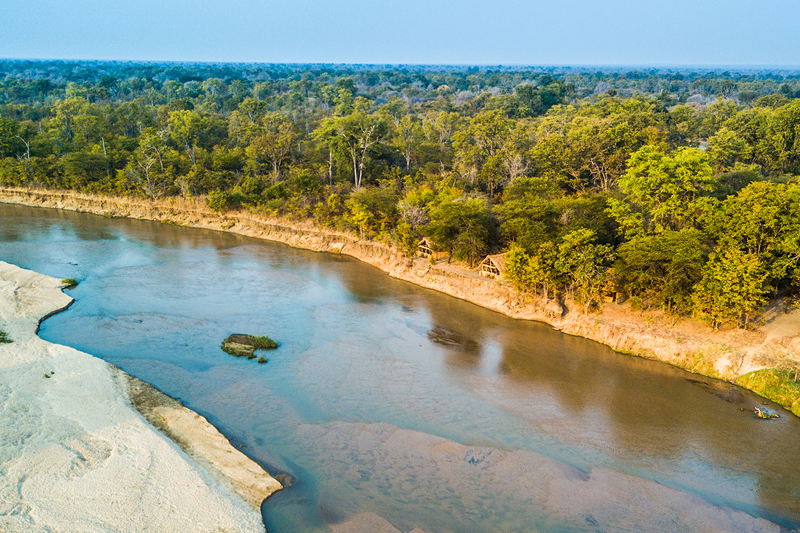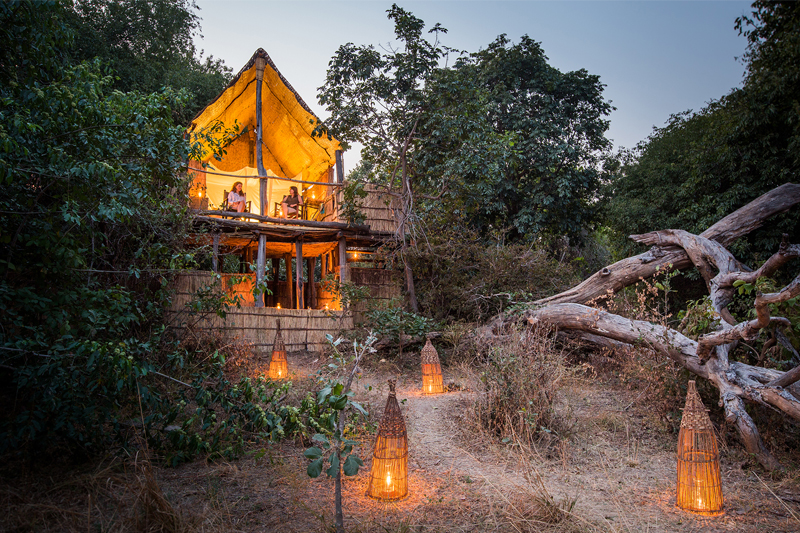Takwela Camp
TAKWELA CAMP IS AN INTIMATE BUSH CAMP LOCATED AT THE CONFLUENCE OF THE MWALESHI AND LUANGWA RIVERS IN THE REMOTE NORTH LUANGWA NATIONAL PARK.
Takwela Camp is the newest camp in the Remote Africa collection and their second in the North Luangwa National Park. Like all Remote Africa camps, expect great food, warm hospitality and excellent guiding. The camp offers a comfortable stay with expansive views over the river confluence. Whilst walking is usually the primary focus of a stay in North Luangwa, Takwela has more areas accessible for game drives and so offers a chance to experience an unexplored area of this remote and wild National Park both by vehicle and on foot.
Rooms
The camp has four chalets (‘bandas’) accommodating up to eight guests. The bandas are built from local materials – thatch, reed and stone – and are open fronted with a blind can be rolled down at night. Each has a verandah to the fore, furnished with built-in sofa and sun lounger – the perfect place to make the most of the river bank views. The bandas are built onto a solid base and have open air plumbed en suite facilities (flush toilet, wash basin and shower).
Central Areas
The spacious central areas of the camp are open sided and include the bar, lounge and dining area and an outdoor fire pit. There is limited Wi-Fi in the main area.
Facilities
Wi-Fi – Yes
Power for Charging – Yes
Swimming – No
Habitat & Wildlife
The North Luangwa National Park covers an area of over 4,500 sq. kilometres, and contains just a handful of small bush camps. Around half the size of its ‘Southern’ counterpart, it is roughly bisected by the Mwaleshi River, a clear perennial tributary of the Luangwa River which has its source on the western escarpment.
Notable differences to South Park are the remoteness (you are very unlikely to encounter other visitors in North Luangwa), large populations of lion and hyaena, enormous herds of buffalo, and Cookson’s wildebeest in abundance. The Mwaleshi River runs clear for most of the season and provides a life-line away from the Luangwa.
While the park was gazetted, along with South Luangwa, in 1972, it remained a wilderness area for many years with entry only permitted to game department rangers and researchers. With no tourism traffic or investment, the park was affected terribly by poaching. A partnership between the Frankfurt Zoological Society and the Zambian Department of National Parks saw the establishment of the North Luangwa Conservation Programme. This programme focuses on conservation of the region’s ecosystem, wildlife and people with effective anti-poaching patrols and community engagement. Black rhino have also been reintroduced to the park, within a secure sanctuary, and a viable population has been established.
Today, the park is an area renowned for its superb wildlife in a pristine environment. Only a few companies have been given the rights to access the area for tourism, offering a very privileged and exclusive wildlife experience not found in many other places in safari Africa.
Activities
Activities generally include a walk in the morning, while afternoons usually include a game drive with sundowner drinks.
Seasons
Takwela Camp is open from mid-June through to the end of October, and game viewing becomes more abundant as the dry season progresses.
Takwela Camp is not suitable for young children and while it accepts children 8 years and above, we would generally recommend for older teenagers (minimum age for walking is 12 years) who are keen walkers and wildlife enthusiasts.
Remote Africa Safaris, owners of Takwela Camp, operate the Tafika Fund which sees a donation from each guest’s stay go to the programmes operated by the Fund. Through donations from guests, tour operators and Remote Africa Safaris themselves, the Fund supports the government run Mkasanga School. They assist in the education of children from the local communities through scholarships and sponsorships to pupils, stationery supplies and payment of salaries for five school staff members at Mkasanga School.
The skills programme within the Fund is growing to cover other areas such as medicine, agriculture and specialist trades including mechanics, carpentry and tailoring. They have provided maintenance to assist in the upkeep of the school and solar lighting for homework rooms which would otherwise not be able to operate in darkness. The Fund has also built an outpatient clinic in the village with hopes of expansion to include an inpatient and maternity wing.
Remote Africa Safaris started and funds the Football for Wildlife initiative which uses the love of football to educate the Luangwa valley communities in wildlife conservation and awareness. The Football for Wildlife league brings together teams from North and South Luangwa, each village forming a team and so assisting in communication within the communities. The league now also includes a ladies’ league and in doing so drives the empowerment of women.
Remote Africa Safaris also three local conservation NGOs: Conservation South Luangwa, the Zambian Carnivore Programme and North Luangwa Conservation Programme. These organisations are involved in anti-poaching measures, human-wildlife mitigation, the conservation of large carnivores and their eco-systems and community empowerment and engagement.
Remote Africa Safaris are members of Pack for a Purpose where guests may use the empty space in their suitcases for donations of much needed supplies for locally supported projects.



